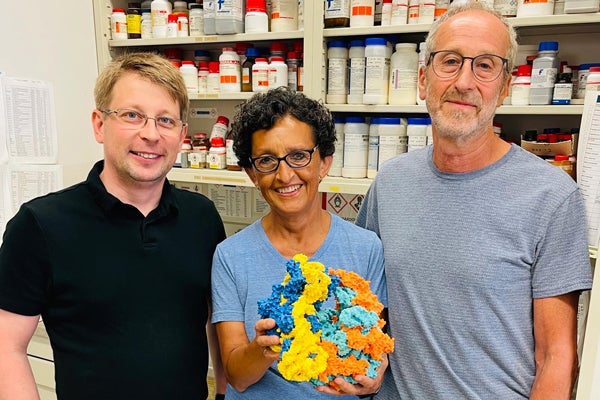Cutting-Edge Dual-action Antibiotic Promises to Make Microbial Resistance “Almost Impossible”
Text of Article

In an excellent example of interdisciplinary collaboration at the UIC Molecular Biology Research Building, Drs. Alexander Mankin and Dr. Nora Vázquez-Laslop of the UIC Retzky College of Pharmacy are working with Dr. Yury Polikanov of the UIC Department of Biological Sciences on the development of a new antibiotic that could make antibiotic resistance nearly impossible. The drug, called a macrolone, accomplishes this by simultaneously targeting two different cellular mechanisms.
“If the antibiotic hits both targets at the same concentration, then the bacteria lose their ability to become resistant via acquisition of random mutations in any of the two targets,” explained Dr. Mankin. “The advantage is that you make it almost impossible for the bacteria to easily come up with a simple genetic defense. The understanding that we’re giving to chemists is that you need to optimize these macrolones to hit both targets.” The research was covered by multiple news outlets including Crains, the SunTimes and The Conversation.